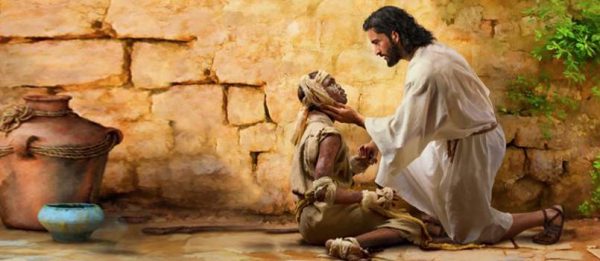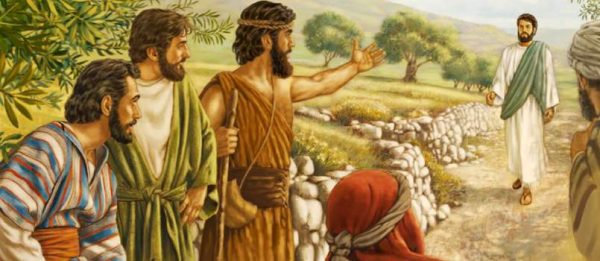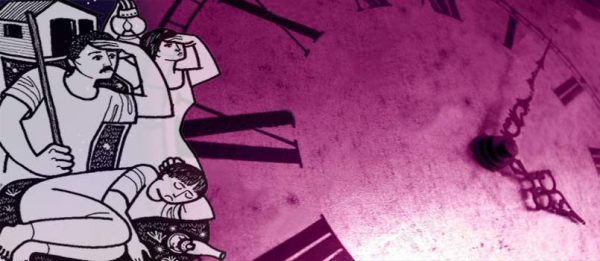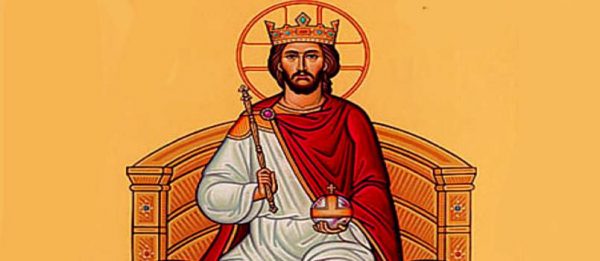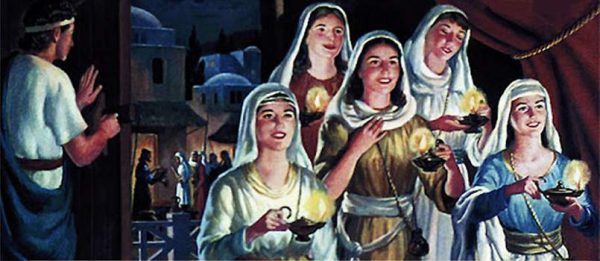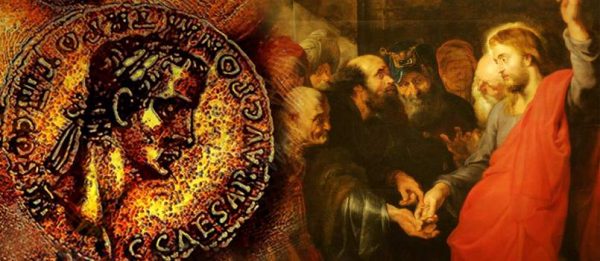209 total views
The Lord Is My Chef Sunday Recipe, Week XXIV-A, 17 September 2017
Sirach 27:30-28:7//Romans 14:7-9//Matthew 18:21-35
Peter approached Jesus and asked him, “Lord, if my brother sins against me, how often must I forgive? As many as seven times?”(Matt.18:21)
Peter’s question to Jesus more than 2000 years ago is still the same question we are asking not only the Lord but also ourselves and others today. It is a question that bears us down, stirring our inmost being especially when a loved one like a family member or a friend is the one who sins against us. Too often, I believe the question is asked out of love and concern along with exasperation due to the pain inflicted on us by the sinner. Will explain this later as we go into our gospel today where Jesus tells us through Peter that there can be no limit in forgiving others: “I say to you, not seven times but seventy-seven times.” (Mt.18:22)
Jesus continues His teachings today about the true essence of the Church. Last week He emphasized about love and charity in maintaining unity in the community. This Sunday, Jesus deepens that teaching by showing us that the best expression of love in the community is forgiveness, asking us to never get tired of forgiving one another. As an expression of love, forgiveness can never be measured nor quantified. It is a gift freely given by our merciful Father who sent us His only Son Jesus Christ to redeem us from our sins. St. Paul last week called on us to “Owe nothing to anyone, except to love one another” and we find along this line of thought in Christ’s parable of the unforgiving servant today the concept of sin as debt to be paid back. We are that servant who accumulated a large amount of debts impossible to repay. And there is only one thing that we all owe God impossible to repay on our own account – love! It is love that God showers us with so much that we have always misused and abused in our sinfulness since the beginning with Adam and Eve. Whenever we sin, we refuse to love and that indebts us in love. The old English and Tagalog translations of Our Father specifically mention this, “forgive us our debts” and “patawarin Mo kami sa aming mga utang.” Sin is a debt of love we primarily owe God that we cannot “settle” on our own, impossible to repay like in the parable we have heard. That is why God sent His only Son Jesus Christ to “redeem” us (“tubos” in Filipino) on the Cross on Good Friday. Although we have been redeemed from this debt, we continue to sin due to our weakness that we need to ask forgiveness from God and others as well as forgive those who have sinned against us. Christ’s sacrifice on the Cross facilitated this for us, enabling us to come to God to ask for His mercy and forgiveness and most especially, to share that grace of mercy and forgiveness with our fellow sinners.
Here we find the question we must ask is not really how often must we forgive but how should we forgive? How can we be like God who is merciful and forgiving?
As I have mentioned at the start, when we ask “how often must I forgive,” it is a question still laden with love despite the pains of the sin inflicted on us by a brother or sister. When we ask “how often must I forgive”, we wonder if our forgiveness is helping the sinner to grow and mature or not. And why do we ask? Because we care! That is how great is the love of God given to us all in Christ’s dying on the Cross when His “ocean of mercy” flowed out for souls and upon us. That mercy and forgiveness are always in our hearts – the starting and end point of forgiving!
“His master summoned him (the unforgiving servant) and said to him, ‘You wicked servant! I forgave you your entire debt because you begged me to. Should you not have had pity on your fellow servant, as I had pity on you?’ Then in anger his master handed him over to the torturers until he should pay back the whole debt. So will my heavenly Father do to you, unless each of you forgives his brother from his heart.”(Mt.18:32-35)
In this parable, Jesus is inviting us to shift in our point of view about forgiveness: instead of using more our minds and intellect like Peter, counting how many times should he forgive, we bring it down into our hearts and start forgiveness from there. To forgive from the heart means to recognize the love amid the pain inflicted on us by a brother or sister. To forgive from the heart means not to let pain and evil overcome the imperfect love we have. It is easier said than done but we have to allow the grace of God to work in us. The fact we try quantifying forgiveness means we still have love left in our hearts. Do not let the mind take over the heart. Remember anew St. Paul’s call last Sunday to owe nothing to anyone except to love one another by going beyond the letters of the laws, beyond the technicalities of our relationships and focus instead on the persons. When we talk of persons, we mean of the hearts.
Sometimes I do not check my Facebook because most of the days all I find posted are wrath and anger against the widespread crime and corruption, not to mention the numerous rants of “friends” waging war on people only they know. The first reading reminds us that “Wrath and anger are hateful things, yet the sinner hugs them tight. Could anyone nourish anger against another and expect healing from the Lord?” (Sir.27: 30,28:3) One of the things I have learned in my six years in the Parish dealing with all kinds of people and hearing all their complaints against each other is to feel more from the heart than to think more from the mind. There are times that I find it reasonable to be mean against sinners or “bad people” I have encountered or reported to me but, when I pray and experience God’s mercy and love, I realized nothing would be achieved by being unforgiving.
This Sunday, try reading Psalm 133 that perfectly complements our topic of forgiveness in community life. It is very short with three verses only, singing the joy of living together as reconciled brothers and sisters in a community like “perfumed oil on the head that runs down into Aaron’s beard and clothing to the very hem.” To forgive from the heart means to be filled always with oil that lubricates our relationships with others; like in a motor, when there is no oil, overheat happens. When we refuse to forgive from the heart, we burn our ties, we burn our community, and eventually, we burn ourselves. Jesus Christ is our “oil” whose sacrifice on the Cross enabled us to forgive from the heart. Let us live in Him as St. Paul tells us today so we may see how all of us have been forgiven by our merciful Father to live together as community.
Fr. Nicanor F. Lalog II,
Parokya ni San Juan Apostol at Ebanghelista,
Gov. F. Halili Ave.,
Bagbaguin, Sta. Maria, Bulacan

















